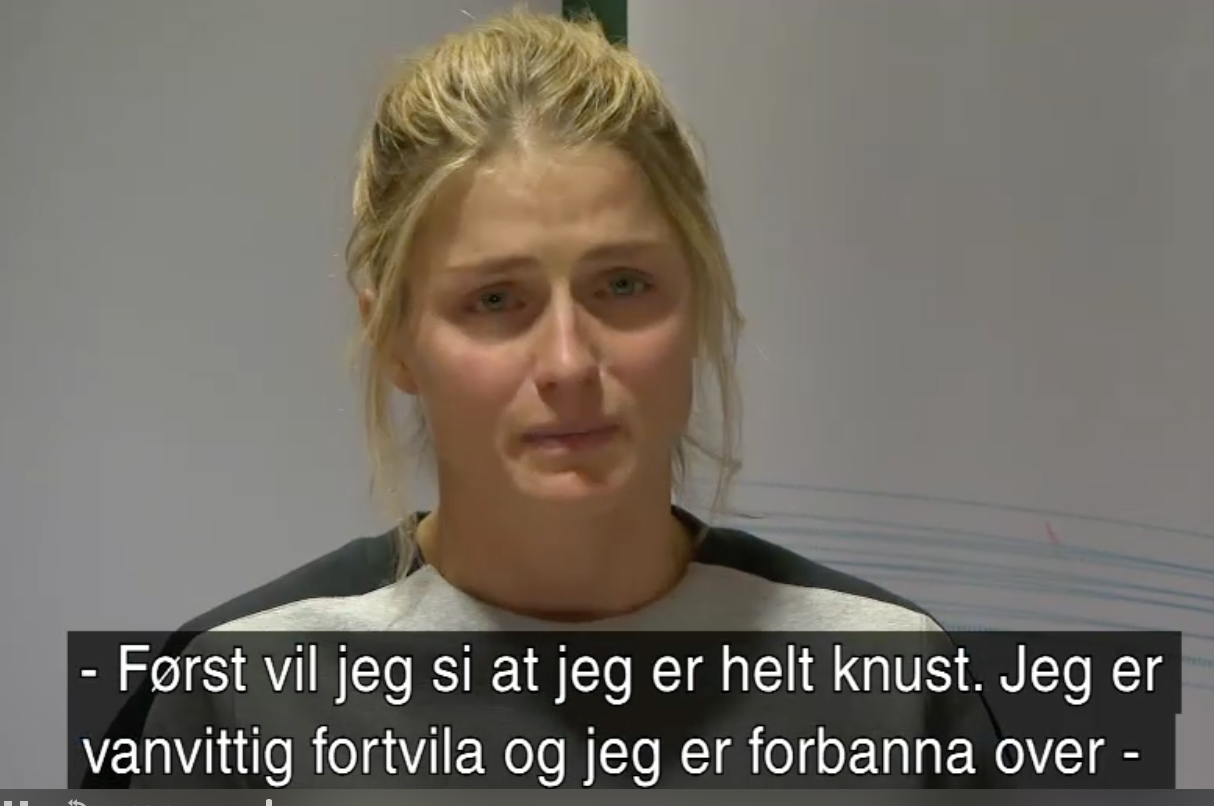
Norwegian cross-country ski star Therese Johaug has been handed a two-month provisional suspension over her use of the banned steroid clostebol.
Anti-Doping Norway, who ordered the out-of-competition doping test on Sept. 16, has completed its initial assessment of the case and confirmed that Johaug’s ‘B’ sample also showed the presence of the steroid. It has referred the case to a Norwegian Olympic Committee hearing panel, and in the meantime issued Johaug a two-month provisional suspension.
Johaug, the winner of two overall World Cup titles as well as several Olympic and World Championship gold medals, had initially declined a voluntary provisional suspension. Her lawyer said at the time that she was completely innocent.
Johaug admitted to using a lip cream containing the drug to treat a sunburn, but said that she had asked her team doctor whether it contained any banned substances and that he had replied ‘no’. Thus she felt that the blame should be on the doctor, not herself.
Her refusal to take a voluntary suspension signaled that she would be fighting the charges completely.
Anti-Doping Norway, however, disagreed with her assessment of blame. The head of its Prosecution Committee, Anstein Gjengedal, said in a press release that Johaug “cannot be said to have acted without fault.”
Though the team doctor, Fredrik Bendiksen, apparently gave her faulty information, athletes are completely responsible under the World Anti-Doping Agency Code for all substances which enter their body.
“She has ingested a banned substance,” Genjedal told state broadcaster NRK. “And an athlete has a rather strict liability for it… It’s in the [Norwegian Olympic Committee] statutes that one is obliged to investigate what one takes…. And we believe that should have been done better than it was in this case.”
Because the Prosecution Committee decided that Johaug bore some of the responsibility for using the medication, she is subjected to a provisional suspension while the investigation is ongoing.
“The suspension means that the athlete can not participate in competition and organized training,” Gjengedal said in the Anti-Doping Norway’s press release.
The role of the Prosecution Committee, according to the press release, is only to decide whether a case should be shelved or be sent to a hearing panel. Gjengedal, the head of the committee, served as a prosecutor before becoming Oslo’s chief of police for 12 years. Also on the committee are a professor of endocrinology and a professor of pharmacology.
Gjengedal asserted in the press release that the Prosecution Committee had no position on the ultimate suspension which should be given, and would wait for the adjudication committee to submit its recommendation. He told NRK that he hoped the Norwegian Olympic Committee investigation would be completed by the time the provisional suspension expires, on Dec. 18.
But sports lawyer Gunnar-Martin Kjenner told Norwegian state broadcaster NRK that because of the complexity and high profile nature of the case, the final recommendation may take months. He predicted that it would not arrive until the new year. Until then, Johaug may be issued further provisional suspensions, two months at a time.
Johaug will be able to appeal the suspension to the Norwegian Olympic Committee’s appeals board.
Meanwhile, Anti-Doping Norway has also opened a case against Bendiksen, as it is also against their code for doctors to prescribe banned substances to athletes.
Chelsea Little
Chelsea Little is FasterSkier's Editor-At-Large. A former racer at Ford Sayre, Dartmouth College and the Craftsbury Green Racing Project, she is a PhD candidate in aquatic ecology in the @Altermatt_lab at Eawag, the Swiss Federal Institute of Aquatic Science and Technology in Zurich, Switzerland. You can follow her on twitter @ChelskiLittle.



